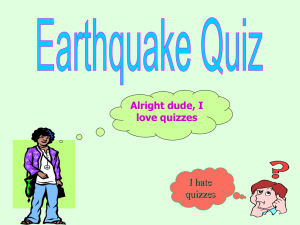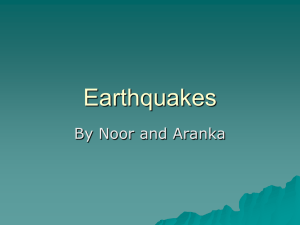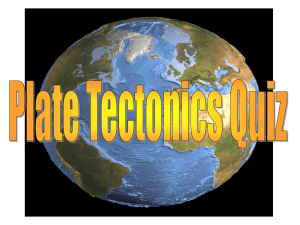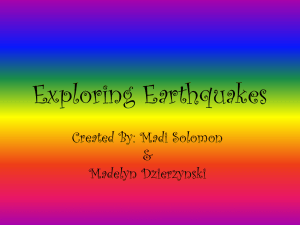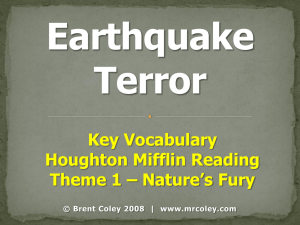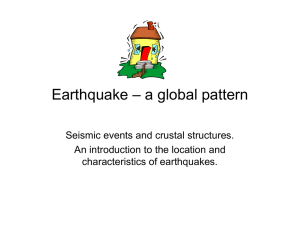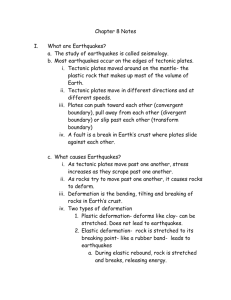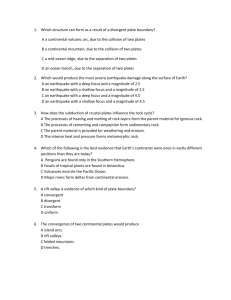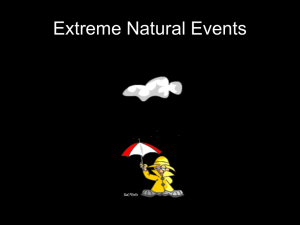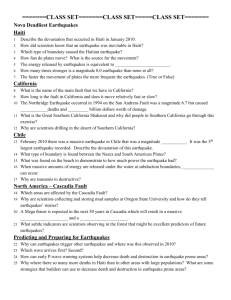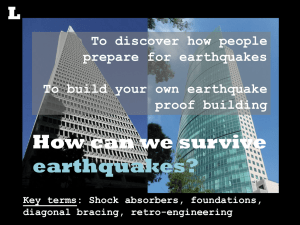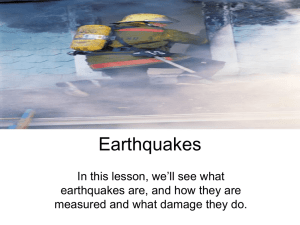Earthquakes
advertisement
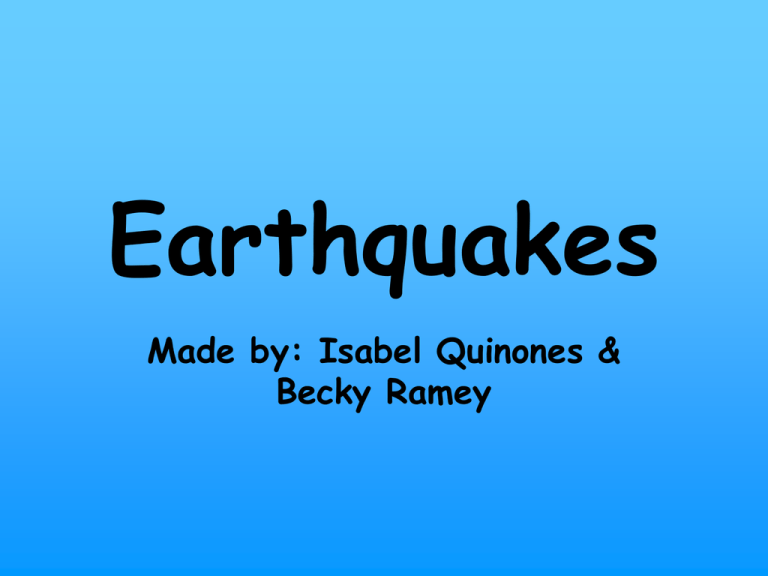
Earthquakes Made by: Isabel Quinones & Becky Ramey How many “supercontinents” did Alfred Wegener’s theory of continental drift assume? - One, the supercontinent called Pangaea. The Earth’s crust is made up of a series of twelve interconnected landmasses called tectonic plates. What are the major plates that affect the U.S? - North American, Juan De Fuca, and the pacific plate. Why do you think that California has so many earthquakes and Florida doesn’t? In what hazard zone is your home located? - California is on a plate boundary, Florida is not. - Illinois is in the low hazard zone 2-4. What is considered to be the most destructive earthquake in history? When did it occur, where was it, what was its magnitude, and how many people died? The 1556 Shaanxi earthquake is the deadliest earthquake on record. When- It occurred the morning of January 23, 1556 AD. Death Toll- Killing approximately 830,000 people. Magnitude- 8 Question 4 continued……… Where- In Shaanxi, China. More than 97 counties in the provinces of Shaanxi. Shaanxi, Henan, Gansu, Hebei, Shandong, Jiangsu, and Anhui were affected. A 520 mile- wide area was destroyed and in some counties, 60% of the population was killed. What are the three basic types of plate boundaries? Divergent- plates move away from each other. Convergent- plates move toward each other. Transform- Two plates slide past each other. What are tsunamis, what causes them, and how fast do they travel? - A tsunami is a series of ocean waves with very long wavelengths. Cause- sudden motion on the ocean floor. Speed- can reach speeds of 500 mph. What are the two types of energy waves created by an earthquake and how do they differ? Which wave travels faster? - The two types of waves are primary and secondary waves. - Primary waves travel faster because they go through solids, liquids, and gases. How much more energy is released by a 7.2 earthquake than a 6.2 earthquake? - A 7.2 earthquake releases 32 times the energy than a 6.2 earthquake. What applications does seismology have besides measuring the magnitude and location of earthquakes? - Reflection and refraction can be used for locating layers of varying density and underground hydrocarbons. Where did most earthquakes happen last week? - California. Can scientists predict earthquakes? - Scientists have known for decades of the faults, but predicting when such shock will occur is beyond even our modern day technology. How do scientists know where an earthquake actually occurred? - Earth’s surface and the earthquake’s focus, the breaking point where the vibrations originated. THANKS FOR WATCHING!
